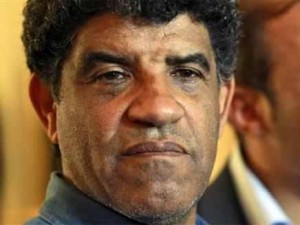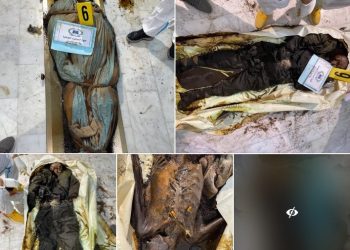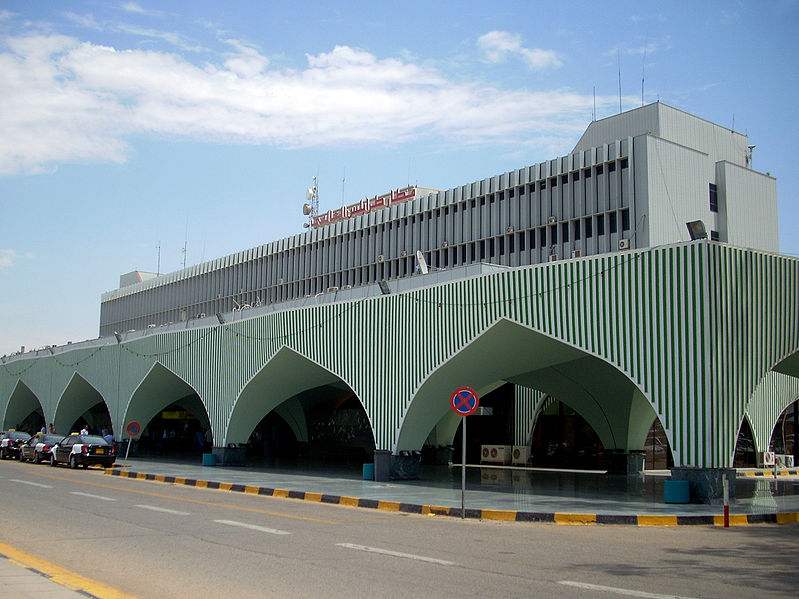By Saber Ayyub.

Tripoli, 28 June 2015:
The Americans offered Qaddafi’s feared security chief Abdullah Senussi the chance to escape his war crimes’ . . .[restrict]prosecution and instead be given a post in the post-revolution government if he would help overthrow his boss.
This is what Senussi apparently claims in a submission to his judges in the court at Habda prison, where he is being tried along with other leading members of the old regime. Verdicts are due to be handed down at the end of next month.
It is unclear when Senussi filed the eight-page submission, a copy of which has been leaked. It is also not possible to confirm if the document is genuine.
In it Senussi says that the offer to drop the International Criminal Court’s charges against him came from the Americans via the head of Turkish intelligence who visited him in Tripoli. He says that beside the Turks, he also had direct contacts with the US, French and British governments.
Senussi also maintains that, during the revolution, he went out of his way to avoid violence. He writes that in February 2011: “I came to Benghazi along with my colleagues to listen to protestors’ demands”.
He says that he cut a deal with lawyer Fathi Terbil, the NTC deputy chairman, to divide Benghazi into three districts. He also claims that he put Terbil in touch with Saif Al-Islam Qaddafi.
He continued: “Then I created more contacts with the protestors through the mediation of Osama Salabi; his brother Ali was in contact with all of us by the phone from Qatar.
“I agreed with Osama Salabi to implement all the protestors’ demands ncluding the recognition of their new National Transitional Council”. He claims he also agreed to pull Qaddafi forces out of Benghazi.
However, the commander of the Fadil Bu Omar Brigade, Mousa Awami, refused to obey the order, he said. Senussi added that along with Major-General Abdel-Fattah Younis, he contacted Qaddafi who ordered Awami’s withdrawal. The brigade HQ was then surrendered to Colonel Wanis Bukhamda.
“However,” wrote Senussi, “some people ….. had succeeded in entering the Rajma military camp and stole a number of tanks and other weapons. Then everything was out of control”.
Senussi further claims that after he had organised a meeting between Qaddafi and a number of lawyers including Abdulhafid Ghoga, who became deputy leader of the Natnioal Tranistional Council, Qaddafi agreed to the declaration of a new constitution.
Senussi then goes on to insist that in the west of the country, he sought to avoid violence.
The leaked document reads: “As for Zawia, I ordered the military commander of the west of Libya, Hadi Imberish, not to use violence against protestors but he didn’t obey my orders. I did the same thing for Misrata and Zintan but I only succeded in saving Zintan from destruction”.
Senussi also speaks of his kind treatment high-level prisoners such as Abdulrahman Swahili, Yousef Mangoush (later to become Chief of Staff) and eastern tribal leader Saleh Atewish.
Senussi maintains that there was an agreement in July 2011 to end the war following meetings with the Muslim Brotherhood.
“I sent Omar Bu Shareda, our representative to Algeria, to meet prominent members of the organisation and we reached an agreement to stop the war on 19 July 2011”. Following this Senussi says at the end of the month, he saw Libyan Islamic Fighting Group members Abdulwahab Ghaid, Khaled Sherif (later Deputy Defence Minister) and Sami Saadi in his office in Tripoli to coordinate the end to the fighting.
He also told the court that he had prevented other regime figures from blowing up a Tripoli prison containing thousands of prisoners. He did not identify the prison.
Senussi completes his document by saying that he had been denied a proper defence
[/restrict]









